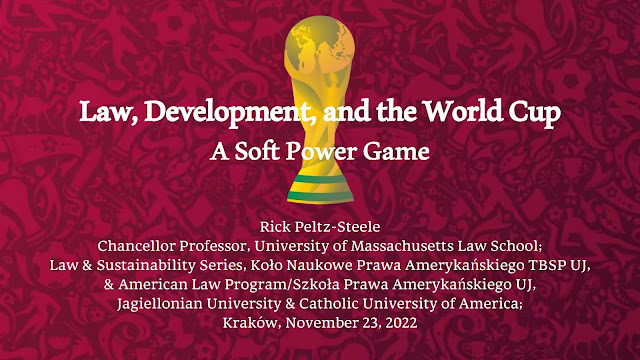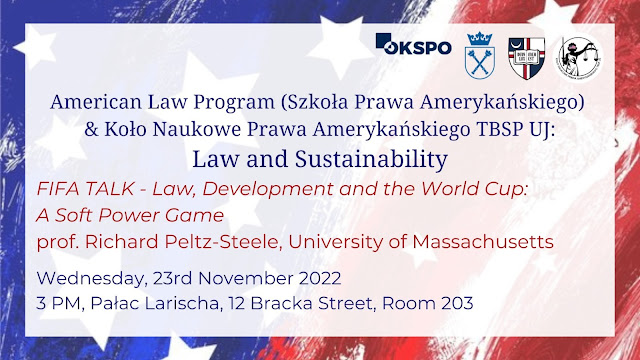 |
| Canadian lawyers protest legal aid de-funding in 2014 (Sally T. Buck via Flickr CC BY-NC-ND 2.0). My wife was a legal services attorney after law school. Her salary could not have paid both law school debt and even a modest mortgage. |
A student loan specialist giving advice on The Takeaway this morning said, "Don't live like a lawyer when you're a student, and you won't live like a student when you're a lawyer."
Betsy Mayotte, founder and president of The Institute of Student Loan Advisors, was repeating an aphorism, she said, as a caution against students borrowing more than they need for higher education. Don't count on any program for loan forgiveness, she warned; rather, assume that you'll have to pay back every dime.*
That's sound, conservative economic advice, especially for an America stretched thin on credit card debt and short on long-term savings. But for anything, I could not work out how the aphorism embodied the message.
What does it mean to "live like a lawyer"?
Mayotte had just cautioned students that they should take the time, however boring the task sounds, to read the whole of their promissory notes. The notes well explain what borrowers are in for, she advised, and "no one told me that" will not later be an excuse to default on debt.
Also good advice. But doesn't living like a lawyer mean being supremely attentive to the fine print and acting conservatively in anticipation of adverse circumstances?
In her informative and insightful book, How to Be Sort of Happy in Law School, Professor Kathryne M. Young related research that successful lawyers are more often natural pessimists, marking a contrast with the successful optimists who have the lead in the other professions, clergy and medicine. That's because a lawyer's job is to prepare for the worst, while clergy and doctors are busy instead coaxing their clients toward a joyful salvation of one kind or another.
Did the aphorism mean to be an optimist when a student, so you don't have to be a student when you're a pessimist? What does that even mean?
You, dear reader, are no doubt quicker on the draw than I, so you've probably worked it out. It dawned on me an hour or so later:
Don't live like a baller when you're poor, or you'll be poor when you're supposed to be ballin'.
The problem is that "lawyer" doesn't mean rich to me.
I'm a lawyer. Not rich. My wife's a lawyer. Also not rich. I checked.
The vast majority of my former students work in public service jobs, if they're in JD-required positions at all. And even the few in private practice: not rich. Okay, I can think of one. But I think he was rich already.
Don't get me wrong. We're not struggling. Two JDs put our household income in the 90-something percentiles, according to the DQYDJ calculator, with me in the 90s as an individual and my wife, who has a master's degree, as well as her law degree, in the 70s.
But income is only one measure of wealth, and, I daresay, not the most important. We both went into serious debt to get those JDs. Our home is mortgaged. We had not paid off our graduate education by the time our only child went to university. And we could not afford to get her through four years without her going into debt, too.
Neither of us started off loaded. We still buy our clothes at Goodwill and Savers. Habits die hard. I just threw away my wife's socks with holes in them while she was out of the house. She won't do it. But I think she deserves better.
When I left law practice in 1996, I was making $50k, which is about $95k adjusted for inflation. I left that for my first job in academics, where I made $35k—$15k less than the IT guy. "Supply and demand," the dean said.
Now I make more. But after advancing in academics for 25 years, I still make less than the average lawyer in the mid-Atlantic, where I practiced, and just a little more than the nationwide average starting salary for a first-year associate.
The takeaway is that I don't associate being a lawyer with being rich. And it's alarming if people are going to law school with that expectation, or if that's how the public sees lawyers. "Kill all the lawyers" was the suggestion of a butcher.
I just finished some physical therapy for an injured shoulder. The bill for that, to my insurer, was $355 per hour. I saw a podiatry specialist recently. That was billed at $122 for what I think was scheduled as a 15-minute appointment, though it took less than 10. We'll call it $488 per hour. I like both those providers, but neither is a superstar gracing the cover of Physicians Weekly.
A very gross number, but the average U.S. lawyer's billable hour now runs about $300. The lawyer has more investment in education than the physical therapist, if a bit less than the doctor. The lawyer is a bargain. Clergy is a better bargain, but that's their thing.
Why isn't the saying, "Don't live like a doctor when you're a student, and you won't live like a student when you're a doctor"?
Well, of course, not everyone in healthcare is rich, either. My wife had an ER visit and hospital stay, no procedures, last summer that was billed at about $13,000 for two days. At the same time, one of my nieces and one of my brothers work as nurses in hospitals; neither of them is making bank. Where's the money going?
I don't know what the right graduate school investment is to get rich. I didn't make it. Maybe whatever gets you to be a healthcare CEO. Be the owner of the hospital, not a provider in it.
Law and medicine can open the door to opportunity, to improve your lot if you're not living comfortably. I'm not knocking that. But no one should go into educational debt without a plan at least to do better than status quo. And plans should be based on realistic expectations.
The aphorism doesn't fit. Worse, it's dangerously misleading. We've got a problem in America with access to education and upward socioeconomic mobility. Simplifying the narrative to suggest that a professional degree will necessarily afford return on investment is not part of the solution.
* I've been reading about the challenges against the Biden student loan forgiveness order. You can follow the legal story at Reason. I'd love to see the plan go through; my daughter would benefit. I'm sorry to say, though, I think the challengers are right: the President exceeded his authority. The unfortunate political outcome, I predict, is that the Administration will be blamed for breaking a promise, and the Supreme Court will be blamed for enforcing the law, both thereby suffering unwarranted further damage to already embattled credibility. Meanwhile, Congress, which in fact held the key to untie the President's hands, but can't ween itself off addiction to money, and especially Democrats, who passed on a real opportunity to make a difference for access to education and socioeconomic opportunity, will escape accountability.
With regard to the title of this post, you can read more about the circumfix a-/-ing at Wiktionary. Read more about "the habitual be" at Slate.
I've been away from the blog for a while owing to an exhausting, if variably rewarding and challenging December and January. I'm back in the saddle now and look forward to catching up on some matters I'm eager to share. Thank you for your patience, and stay tuned!












